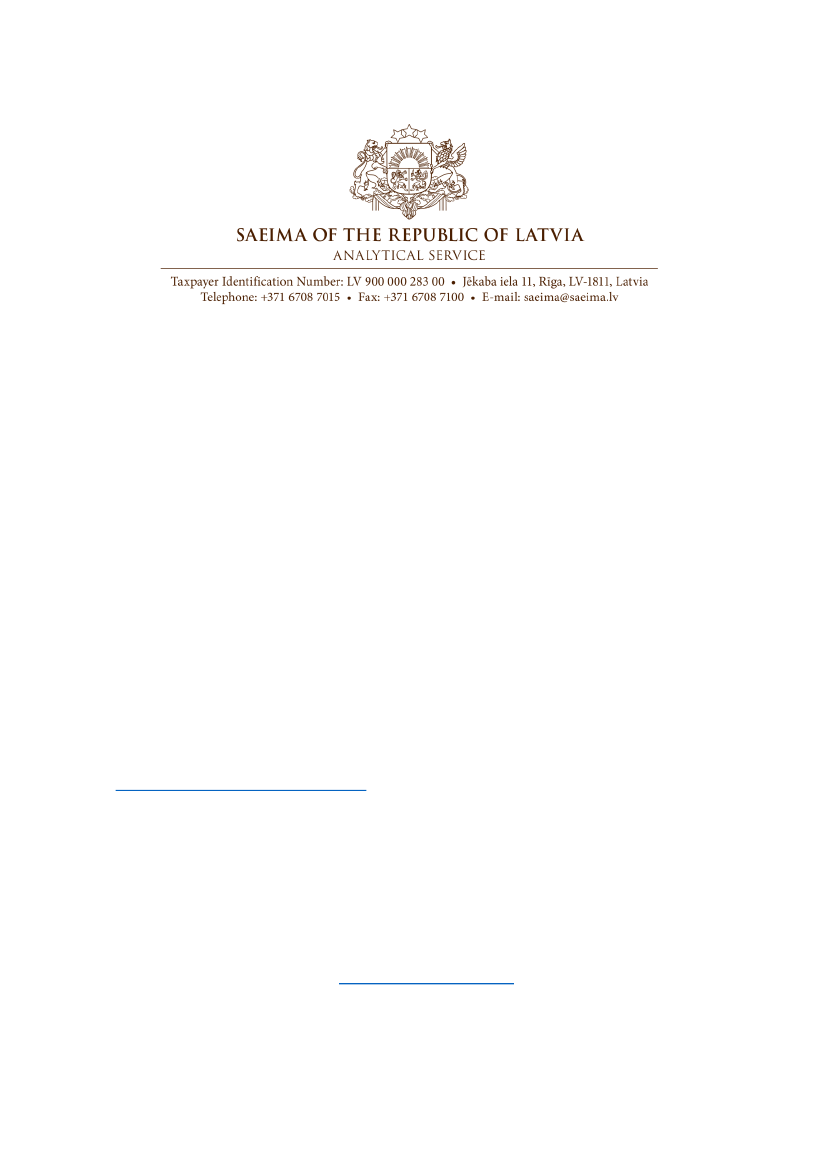
July 03, 2025
Reply to the ECPRD request No. 6116
The offering of a financial advantage in exchange for the resignation of a seat in
parliament
With regard to Latvia, the answers are as follows:
1) Is there any legislation or other form of regulation, such as a code of conduct, that
prohibits
i. a Member of Parliament from accepting a financial advantage on the condition
that they resign their seat;
ii. the act of offering such a proposal,
including by individuals from the member’s
own party.
2) If so, what does the regulation entail, and how is it enforced?
In the Republic of Latvia, there is no such a specific code. There are also no known cases of
criminal proceedings initiated in connection with the buying out of a parliamentary mandate.
In Latvia, the free mandate of a Member of the Saeima is constitutionally protected by the
Constitution of the Republic of Latvia
(the Satversme). According to the Section 5 of the
Satversme, the Saeima shall be composed of one hundred representatives of the people,
Section 14
–
the electors may not recall any individual member of the Saeima and Section 28
- Members of the Saeima may not be called to account by any judicial, administrative or
disciplinary process in connection with their voting or their views as expressed during the
execution of their duties. Court proceedings may be brought against members of the Saeima
if they, albeit in the course of performing parliamentary duties, disseminate:
1) defamatory statements which they know to be false, or
2) defamatory statements about private or family life.
The Constitutional Court of Latvia (Judgment
of 1 August 2019;
available in Latvian) expressly
recognised that these provisions give rise to a “free representative mandate” —
meaning that
a Member of Parliament is an independent representative of the people, guaranteed by the
democratic constitutional order.